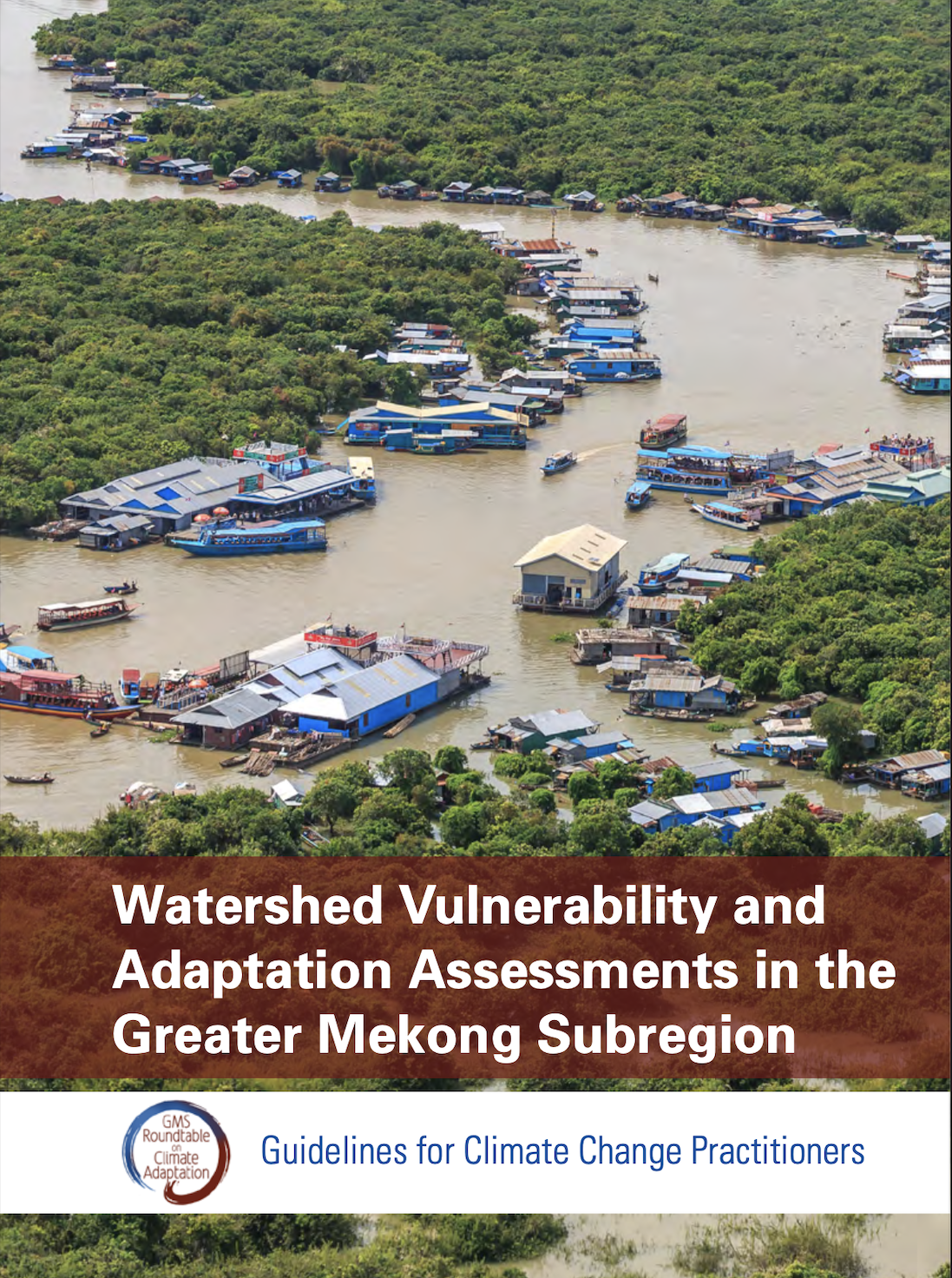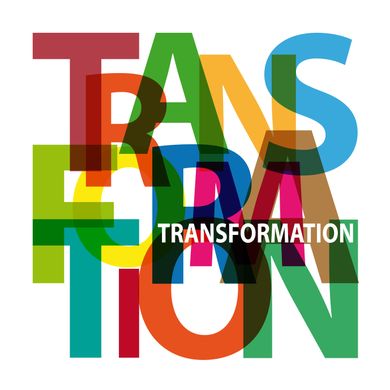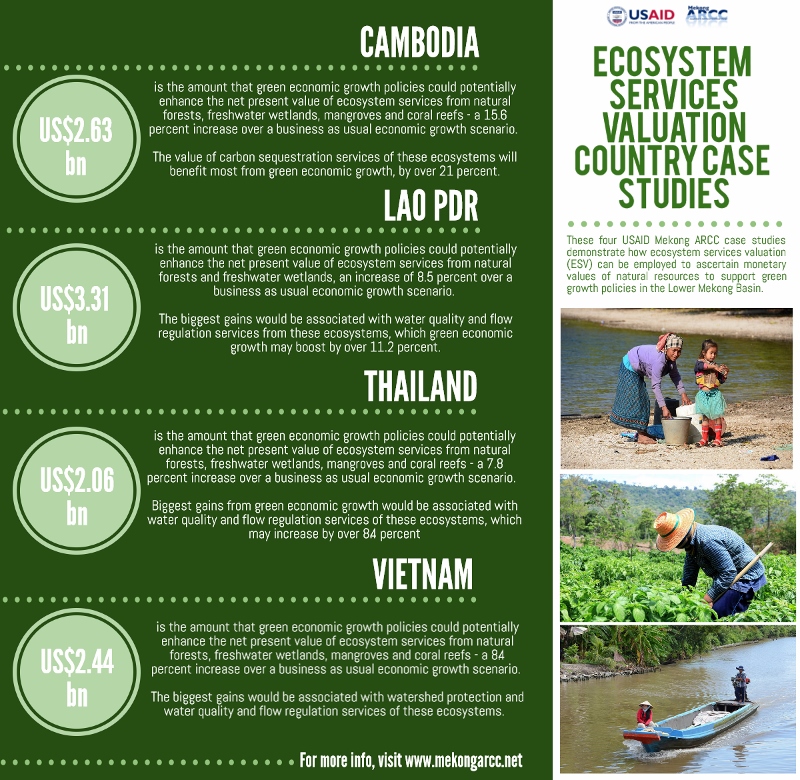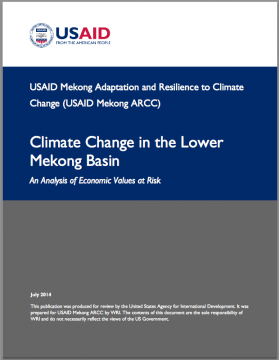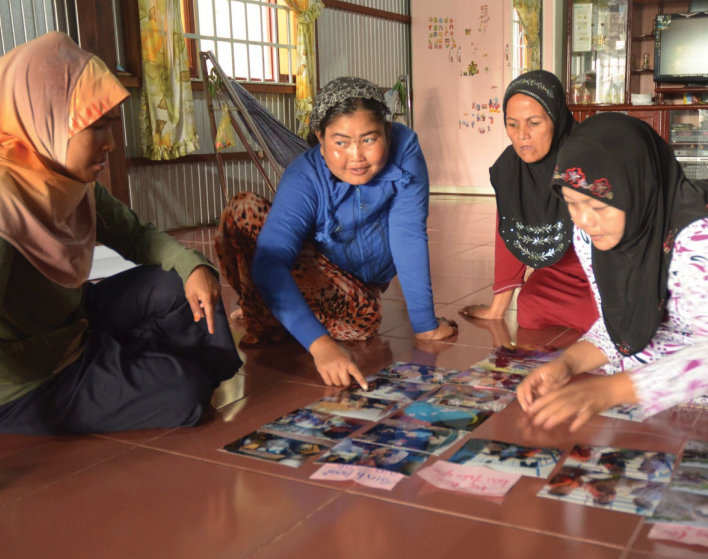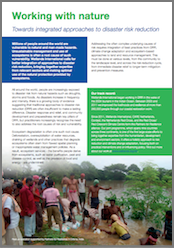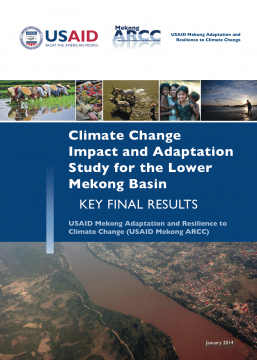Mekong
Watershed Vulnerability and Adaptation Assessments in the Greater Mekong Subregion
These guidelines incorporate the direct experience of projects in the Mekong Region that have used watersheds as an organizing element for climate-change vulnerability and adaptation assessments.
Transformational Adaptation: An Introduction
This introductory article provides a brief overview of the concept of transformational adaptation and relevant case studies for practitioners.
Valuing Ecosystem Services in the Lower Mekong Basin
4 specific Ecosystem Services Valuation Guides for Cambodia, Lao PDR, Thailand and Vietnam detail explanations of ecosystem services, valuation methods, best practices, and policy recommendations.
Climate Change in the Lower Mekong Basin: An Analysis of Economic Values at Risk
This VAR Report assesses the current-day values of key assets at risk to climate change in the Lower Mekong Basin countries.
Our Valuable Voices: Community Digital Storytelling for Good Programming and Policy Engagement
This publication highlights the experience and lessons learned from a Community Digital Storytelling activity within the Integrated Community-based Adaptation in the Mekong (ICAM) Project.
USAID Mekong ARCC Climate Study for the Lower Mekong Basin: Key Final Results
The USAID Mekong ARCC project is a five-year program (2011-2016) funded by the USAID Regional Development Mission for Asia (RDMA) in Bangkok and implemented by DAI in partnership with the International Centre for Environmental Management (ICEM), World Resources Institute (WRI), International Union for Conservation of Nature (IUCN), World Wildlife Fund (WWF), and Asian Management and Development Institute (AMDI).
